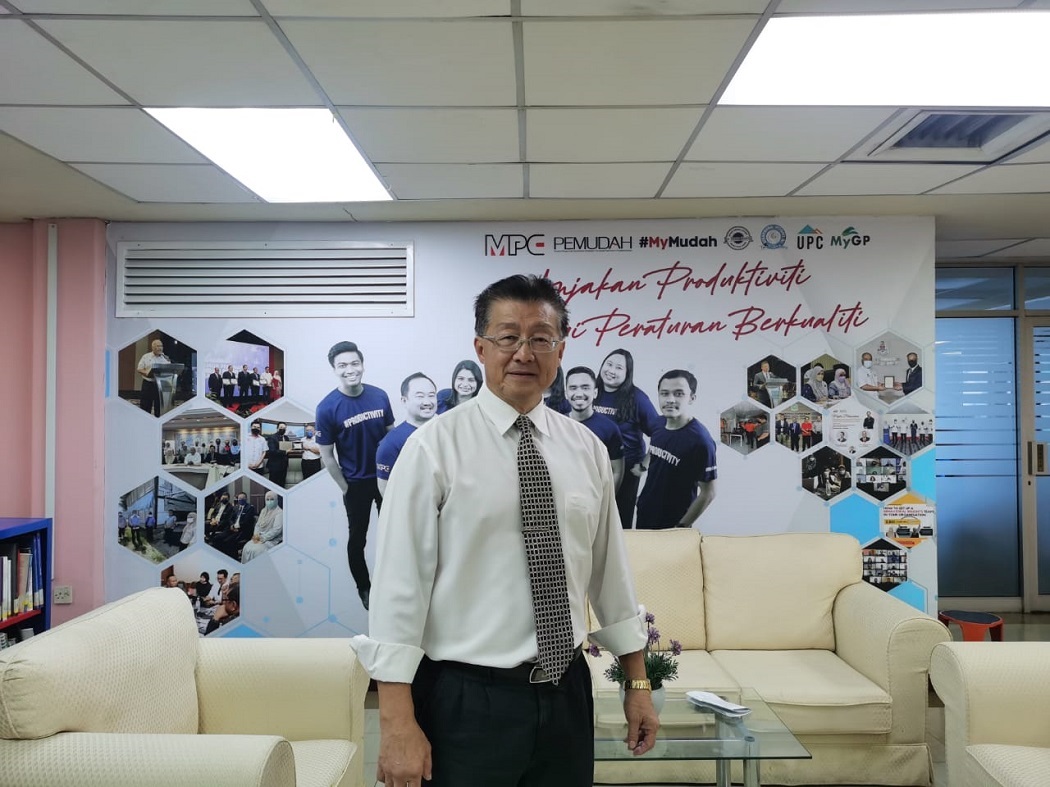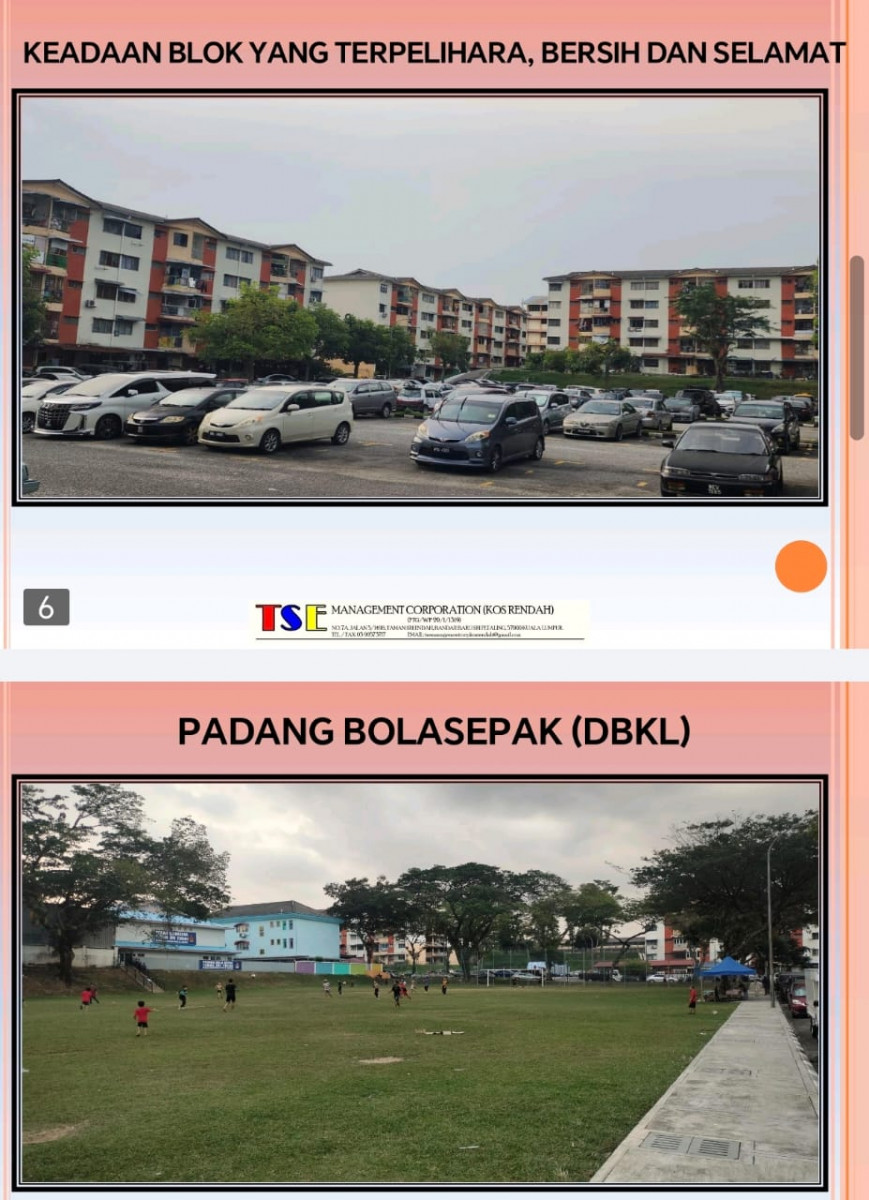Redevelopment of low-density KL flats to 3,605-unit condo turns minister’s statements to empty rhetoric—HBA

- While the Federal Territories Minister’s emphasis on the need for balanced development—including supporting infrastructures, education, amenities, green spaces, transport, and proper planning—is commendable, the reality does not match her words.
Physical development in Kuala Lumpur must be balanced with social needs to ensure the city remains conducive and liveable for all generations, said Minister in the Prime Minister’s Department (Federal Territories) Datuk Seri Dr Zaliha Mustafa.
“Without a doubt, rapid development in Kuala Lumpur will continue to expand, but the need to align development approvals with the readiness of supporting infrastructure such as schools, clinics, road networks, public transport pressure and green spaces must be considered from the earliest stages of planning.
“The siloed approach between developers and local authorities must be replaced with comprehensive planning that considers the overall impact on the area,” she was reported saying in a Bernama report on June 18.
While the Federal Territories Minister’s emphasis on the need for balanced development—including supporting infrastructures, education, amenities, green spaces, transport, and proper planning—is commendable, the reality does not match her words.
A stark example of this discrepancy emerges in urban redevelopment programmes like those affecting low-cost flats in Taman Sri Endah, Sri Petaling, Kuala Lumpur. This is one of the 139 sites designated by KL City Hall (DBKL) for “redevelopment/renewal” under the yet-to-be-tabled Urban Renewal Act (URA).

Here are a few key issues and grievances worth highlighting vis-à-vis the Sri Endah Flats:
1. Being shortchanged in redevelopment
Residents in Sri Endah Flats have faced:
- Lack of transparency in redevelopment plans
- Forced evictions or relocations with inadequate compensation or alternative housing
- Upgrading promises (e.g.: facilities, lifts, safety) that are poorly delivered
- Rejuvenation presented as a better proposition
Redevelopment should not disproportionately burden the urban poor. Instead, they are the ones who should benefit the most, since they are the ones living in aging, under-maintained buildings.
2. Long-standing concerns
- Poor maintenance of common facilities and infrastructure
- Flooding, waste disposal, and sanitation problems
- Lack of community consultation on urban renewal or infrastructure works
- Rising cost of living and gentrification pressure from surrounding developments (e.g.: Sri Petaling township commercial boom
3. Gap between policy and reality
The minister’s statements reflect a sound vision. But it’s important to note that redevelopment is not about how swanky the buildings are, but by whether everyone, especially the most vulnerable, gets a fair deal.
The fact is, the Sri Endah residents have raised their protests through various platforms, including their Member of Parliament Teresa Kok, who had even voiced the objection in Parliament, but to no avail. If low-income residents, including owners, tenants and occupiers in key areas like Sri Endah Flats are left behind, then the development is neither inclusive nor sustainable.
All show and no go
A public-listed property developer, vide one of its subsidiary companies, has submitted plans for the proposed redevelopment of Sri Endah Flats and the DBKL football field. Notwithstanding the fact that the said plot is “landlocked” within limited existing schools and infrastructure, DBKL has somehow issued a “No objections” letter for the proposed redevelopment at the site.
From five-storey flats consisting of 689 units in seven blocks, DBKL has approved the redevelopment proposal for a massive 3,605 units within 54-storey multi-block apartments with basic amenities. With the existing limited infrastructure, congested roads, and nearby schools, the approval raises serious planning, equity, and sustainability concerns.
Let’s juxtapose the case of the Sri Endah Flats against the statement made by the FT Minister:
1. Infrastructure strain
The existing roads, drainage, and utilities in Taman Sri Endah have never been designed for high-density, high-rise developments.
- Traffic congestion is already a problem, especially with access to, from and within Sri Petaling.
- Schools nearby (SMK Sri Petaling, SMK Seri Saujana, SJK(C) La Salle) will face worse congestion, parking chaos, and safety risks for children.
- Public transport is not scaled for such a large influx of new residents.
2. Landlocked and overbuilt
The land is already boxed in and has no realistic room to support a 54-storey high-density complex.
- The project will overshadow existing buildings, possibly reducing natural light and airflow.
- It may violate setback rules, height limitations, or fire safety access requirements.
- Green spaces are already limited—this will worsen liveability and possibly breach planning guidelines
3. Gentrification and displacement
The low-cost flat residents, including tenants, are at risk of being displaced without adequate replacement housing or compensation.
- Many low-income families will be priced out of the redeveloped units.
- There’s no guarantee of 1-to-1 housing replacement at equivalent or better terms.
- Similar cases in other parts of KL (e.g. Kg Kerinchi, Pekeliling Flats) have shown residents were sidelined post-redevelopment.
- The developer should instead calculate compensation for the unit owners via “profit-sharing” based on the new project’s gross development value.
4. Lack of community consultation
There has been no meaningful engagement or referendum with residents—contrary to Zaliha’s own commitments to inclusive planning.
- DBKL Local Plan (Rancangan Tempatan Wilayah Persekutuan) mandates community feedback on major developments.
- Approvals done without proper consultation may be procedurally flawed and can be challenged legally or administratively.
5. Environmental and social impact
A project of this scale must undergo an independent Traffic Impact Analysis (TIA) Environmental Impact Assessment (EIA), and Social Impact Assessment (SIA).
- Concerns include:
- Soil stability and safety of a 54-storey structure
- Impact on water table, flooding risk
- Waste management overload
- Utilities availability from the service providers
- Community fragmentation
- Densification explosion from communal living to 3,605 households
- Loss of green spaces
- Public transport sufficiency
- Genuine concerns for future maintenance charges and sinking funds and its affordability
- Possible “late”, “sick” and “abandonment” of project which has plagued the housing industry
- Is the Madani government going to ”underwrite” the project in the event the project is abandoned?
Read also
Urban Renewal Act: Is KPKT biting more than it can chew?
Owners’ self-initiated Urban Renewal Programme (URP)
The owners' self-initiated URP refers to urban renewal or redevelopment initiated by the owners through their joint management bodies, management corporations or residents’ associations, rather than by the government, developers, or local authorities like DBKL.

This approach empowers residents and owners of old flats to collectively decide on redeveloping their properties through partnerships with private developers—but with their consent and involvement from the beginning, If the owners themselves have not initiated, consented to, or negotiated redevelopment terms, then this is not a self-initiated renewal—it’s a top-down displacement.
- DBKL’s Draft KL Structure Plan 2040 mentions owner-driven urban renewal as a preferred method for ageing strata schemes.
- The Strata Management Act 2013, Section 111, outlines how decisions must be made in strata-titled properties (quorum, voting thresholds).
- The Real Estate Housing Developers Association (Rehda) has mentioned that URA should be owner-initiated.
Read also
Redevelopment can be helmed by owners themselves without URA’s decree
Walk the talk
Urban redevelopment should not be built on empty promises and high-sounding rhetoric. When Zaliha spoke about inclusive growth, green planning, and social equity, these words must translate into visible, on-the-ground results—especially for low-income communities.
But when projects like the proposed 54-storey redevelopment of Sri Endah Flats are approved without full community consultation, without acceptable terms and conditions of compensation, without infrastructure upgrades, and without traffic jam mitigation, then those statements become rhetoric divorced from reality.
Meaningful leadership means listening to the people affected—not speaking over them. We urge our leaders to:
- Walk the ground, talk to residents including owners, tenants and occupiers and the vulnerable group.
- Ensure transparent planning.
- Prioritise the rights and dignity of original communities.
- Push back against unfair or poorly planned redevelopment.
This article is written by National House Buyers Association (HBA) honorary secretary-general Datuk Chang Kim Loong, together with TSE Management Corporation (Low Cost) chairman Mohd Mokhsin Junaaid.
HBA is a voluntary non-government and not-for-profit organisation manned wholly by volunteers.
HBA can be contacted at:
Email: [email protected]
Website: www.hba.org.my
Tel: +6012 334 5676
The views expressed are the writers’ and do not necessarily reflect EdgeProp’s.
Does Malaysia have what it takes to become a Blue Zone, marked by health and longevity? Download a copy of EdgeProp’s Blueprint for Wellness to check out townships that are paving the path towards that.
Never miss out
Sign up to get breaking news, unique insights, event invites and more from EdgeProp.
Latest publications
Malaysia's Most
Loved Property App
The only property app you need. More than 200,000 sale/rent listings and daily property news.
